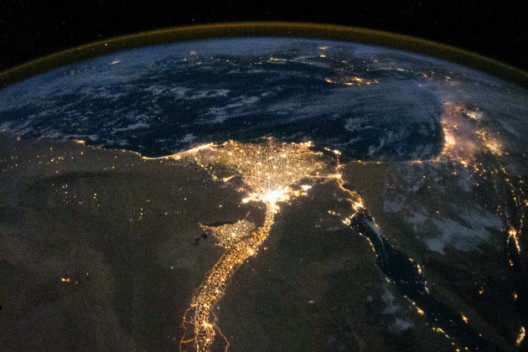 Catch up on the latest out of Egypt every week, with analysis, news updates, photos, videos, and more.
Catch up on the latest out of Egypt every week, with analysis, news updates, photos, videos, and more.
Quote of the Week
“We will appeal again and again until we banish this law.” –Faysal al-Sayyed, a Brotherhood member and lawyer on the court ruling upholding the ban of the organization.
Egypt in the News
- Defiant Morsi appears in courtroom as trial adjourned to January 8
- Central Bank of Egypt to return $500 million to Qatar this week
- Bassem Youssef’s al-Bernameg suspended amid widespread criticism
- Nour Party opposes gender equality in Egypt constitution
- Brotherhood supporters call for global demos to celebrate Morsi appearance
- US State Department calls for transparency in Egypt’s courts; Congress delegation in Cairo
- Cabinet Preparing Bill on Abusive Graffiti; Protest Law up for Review
- Egypt court upholds ruling to ban Brotherhood
- Kerry and Faisal agree to help Egypt’s ‘economic transformation’
- Brotherhood Vows to Endure Despite Ban as Morsi’s Wife Pays Him a Visit
- Egypt’s foreign reserves drop in October to $18.6 billion
- Hosni Mubarak to remain under house arrest, says Egypt PM
- Egypt to Hold Parliamentary Vote in February/March: Foreign Minister
- Egypt parliament upper house eliminated in draft constitution
- US congress delegation against cutting Egypt aid: Report
On EgyptSource
- Two Sorrowful Scenes at a Church Funeral by Amr Hamzawy
- The People of The Square by Amir Beshay
- Egypt’s Transition Roadmap: Main Event or Sideshow? by Michele Dunne
- Morsi’s Court Appearance Highlights Egypt’s Polarization by Nancy Messieh
- Congress Discusses the Future of US Aid to Egypt by Mohamed Elgohari
In-depth
Kerry’s words not enough to recast US-Egypt ties | Wael Nawara, Al Monitor
“Both the United States and Egyptian administrations downplay the rift between the two countries. But you can just see that each has taken a different path. The paths have parted. And with time, the parties will grow farther apart. It is life. Even close friends one day wake up and discover they have different interests leading each to take a different path, and before long they grow apart. But when did it all start? Is it really just because of the US administration’s position on what happened after June 30? I suspect the problems are much deeper and go back to grievances which have accumulated over years and even decades…
…Because of its strategic location, it is essential for Egypt to maintain friendly ties with the United States and Russia, as well as other world powers. It is also in the best interest of the United States to maintain friendly relations with the influential and pivotal hub which Egypt represents. But times have changed, and both countries must capture the essence of the new era. The Cold War is over, and the world has changed forever. Egypt is no longer governed by a president who can strike deals with whomever he pleases. Politics in Egypt are now shaped by the people, even without having an elected parliament or government, through the mechanics of crowd democracy. The US administration must rethink its policies in Egypt and the region if it wishes to restore the trust and goodwill of the Egyptian people. It should seek to build a relationship based on mutual interests and respect to avoid repeating mistakes of the past. Egyptians need to feel the United States is a genuine friend of their country, not one who pretends to be a friend just to protect the interests of Israel.”
Egypt’s al-Azhar Steps Forward | Nathan Brown and Ahmed Morsy, Carnegie
The downfall of Egypt’s elected Islamist president, Mohamed Morsi, in July 2013 has not resulted in the separation of religion and state in the country. Indeed, something quite different seems to be occurring: religion is being nationalized. Under the leadership of al-Azhar—a complex of Islamic schools, university faculties, and research institutes—the country’s religious establishment appears to be coalescing internally, aligning itself firmly with the post-Morsi road map, and asserting its leadership of religious life throughout Egypt…
…However gradual its efforts and however modest its stated vision, al-Azhar is now leading Egypt’s religious establishment into a new era. Traditional rival institutions have been brought into far tighter coordination, and the grand sheikh and the Council of Senior Scholars stand at the head of the more unified apparatus. The mufti and the Ministry of Religious Endowments work more closely with al-Azhar, and all seem to acknowledge the moral authority of al-Azhar’s approach to Islam.
Not all dissident voices have been silenced—the demonstrations by al-Azhar students and the continued presence of Salafists in public debates make that clear. But the position of the grand sheikh and al-Azhar remains secure, with dissident voices losing some of their force and influence without being suppressed.
The Egyptian American Rule of Law Association (EARLA) published a video about the Freedom of Information Act. In Arabic, the video explains and emphasizes the importance of the Freedom of Information Act in Egypt, which has been campaigned for since the fall of Mubarak in 2011.
On November 4, Egyptian photographer Mosa’ab Elshamy took photos of the scene outside the courtroom where ousted president Mohamed Morsi’s trial began.
My photos from Morsi’s trial at the Police Academy today in Cairo: http://t.co/jG956nsxqZ pic.twitter.com/SmQSzraQFa
— Mosa’ab Elshamy (@mosaaberizing) November 4, 2013
Cartoon of the Week

Egypt’s “transitional” period (Source: Youm7)
Image: Photo: NASA
